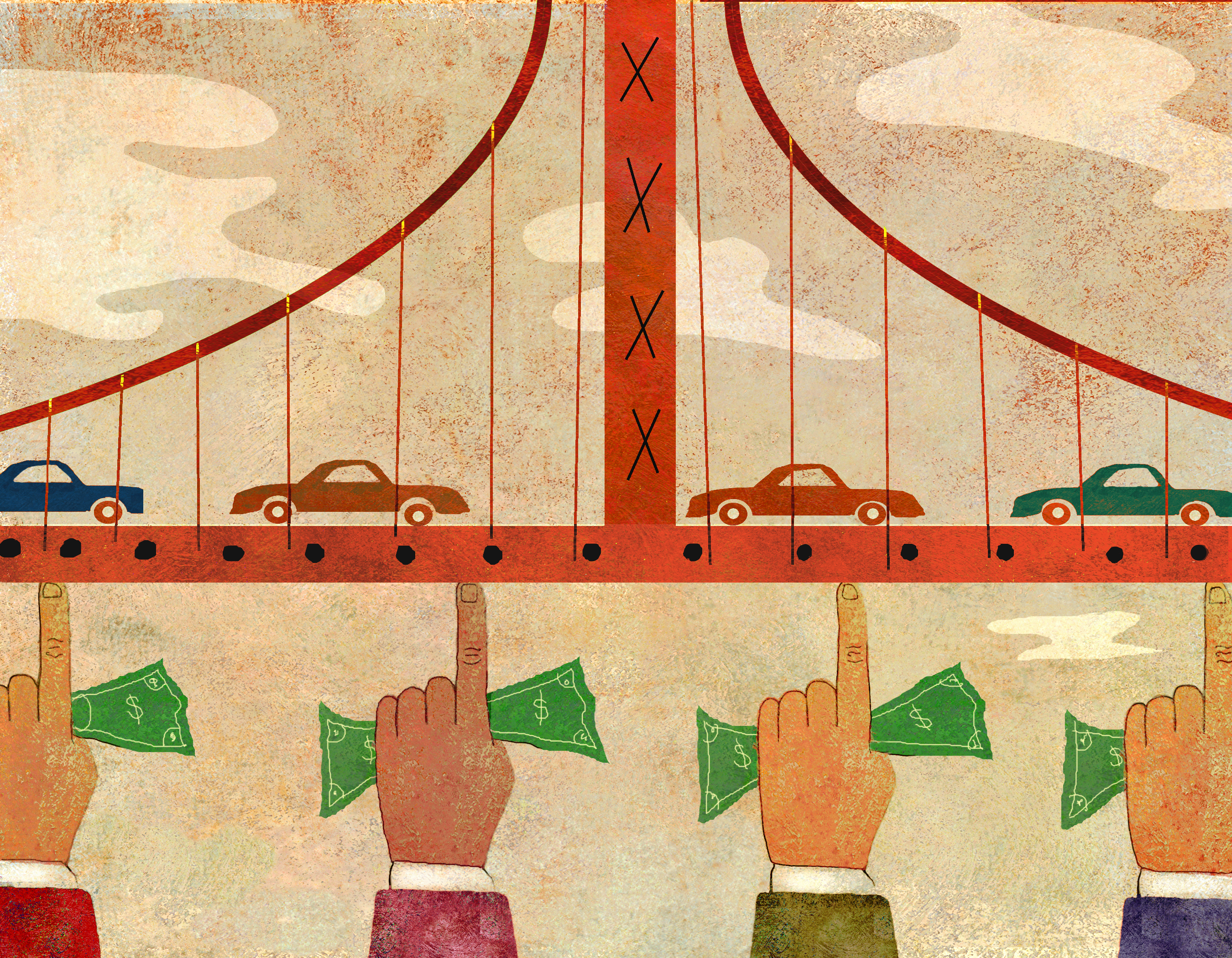The most underrated problem with American infrastructure
The prices are too damn high!


A free daily email with the biggest news stories of the day – and the best features from TheWeek.com
You are now subscribed
Your newsletter sign-up was successful
With Republicans likely in control of the House of Representatives until at least 2020, wishful thinking is unavoidably a big part of the Democratic presidential primary. While Bernie Sanders' policies are by far the most ambitious, all three major candidates are laying out plans for the country that don't have a single prayer of getting through Congress.
One area of particular focus of late is infrastructure. As usual, Sanders wants to spend the most, with a detailed plan for $1 trillion in new spending over the next five years. Hillary Clinton proposes about a quarter of that, or $275 billion. Both have an infrastructure bank, and propose approximately similar breakdowns between transit, highways, levees, dams, internet cabling, water systems, and so forth. Neither has a detailed plan for raising the revenue, but since the smart plan would be to just borrow the money anyway, that doesn't particularly matter.
However, neither mention one very large problem: costs. American infrastructure is the most expensive on the planet. Republican obstruction is the major barrier to anything good happening right now, but the cost problem is a bigger long-term obstacle to the development of quality infrastructure.
The Week
Escape your echo chamber. Get the facts behind the news, plus analysis from multiple perspectives.

Sign up for The Week's Free Newsletters
From our morning news briefing to a weekly Good News Newsletter, get the best of The Week delivered directly to your inbox.
From our morning news briefing to a weekly Good News Newsletter, get the best of The Week delivered directly to your inbox.
Consider NEC Future, the Federal Railroad Administration's recent blue-sky proposal for Amtrak upgrades in the Northeast Corridor. Their plan for true high-speed rail stretching from DC to Boston comes in at an incomprehensible $290 billion. Transportation expert Alon Levy examined the plan, and concluded the following:
[I]f NEC Future cuts a zero from its budget, I will still consider it too expensive — perhaps worth it because of the benefits of HSR, but certainly too high to be built without further inquiry. $29 billion for 720 km is justified for a line with a fair amount of tunneling and entirely greenfield construction, whereas the NEC has long segments that are already nearly ready for HSR and requires very little tunneling. [Pedestrian Observations]
So why are U.S. prices so out of whack? After all, the U.S. used to be able to easily handle huge, complex projects — Hoover Dam, and hundreds of other New Deal projects, were finished ahead of schedule and under budget. And the cost problem is palpably worse today than it was 20 years ago.
Regarding the NEC Future, Levy compiles a lot of evidence that it's excessive and inefficient project design — duplicative tracks, unnecessary new tunnels and stations, and so forth. Others point to "buy America" rules and outdated federal regulations as part of the cost problem. All those explanations makes some sense, but with such a dizzying budget, it's hard to imagine we're doing anything right.
We should figure it out soon.
A free daily email with the biggest news stories of the day – and the best features from TheWeek.com
At some point Democrats will again get a chance at full control of Congress. As Levy argues, any sensible industrialized nation could build out a high-speed rail network across the entire United States, hitting almost every major metro area, for $290 billion. Even with America's janky and outdated political system, we could still approach quality infrastructure by world standards in big irregular slugs — but it simply won't happen if nine out of every 10 dollars are wasted.
Adding to the urgency is the fact that even if the issue is largely theoretical at a federal level, thanks to Republican roadblocks, it's still very real for many states. Some are forced to invest in infrastructure through sheer necessity, like New York, or they're car-clogged places belatedly rediscovering the virtues of mass transit, like Los Angeles or even Phoenix. There is substantial and growing political will behind at least a modicum of spending (particularly in the Northeast), but atrocious prices mean we get almost no value for the money. This then undercuts the general political support for infrastructure, since the projects are often obviously wasteful or enormously delayed.
So if liberals want to see improvements to American infrastructure sometime in the next decade, they need to start demanding better bang for their buck now — and leaders like Sanders and Clinton need to start making it part of their platforms.
Ryan Cooper is a national correspondent at TheWeek.com. His work has appeared in the Washington Monthly, The New Republic, and the Washington Post.
-
 How the FCC’s ‘equal time’ rule works
How the FCC’s ‘equal time’ rule worksIn the Spotlight The law is at the heart of the Colbert-CBS conflict
-
 What is the endgame in the DHS shutdown?
What is the endgame in the DHS shutdown?Today’s Big Question Democrats want to rein in ICE’s immigration crackdown
-
 ‘Poor time management isn’t just an inconvenience’
‘Poor time management isn’t just an inconvenience’Instant Opinion Opinion, comment and editorials of the day
